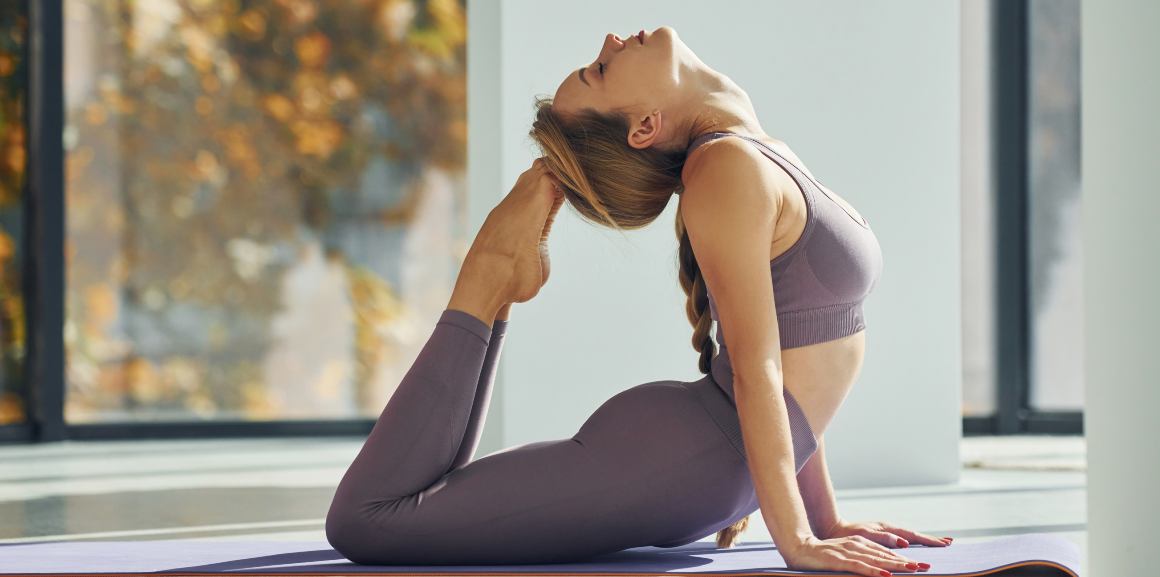How Long Does It Take to Learn Mindfulness?
Published:
Mindfulness has become an increasingly popular practice for reducing stress and improving mental health. But learning mindfulness is a journey - how long does it take to master this skill?
Contents:
- Getting Started With Mindfulness
- Building a Regular Mindfulness Habit
- How Long Does It Take to See Changes?
- Achieving Mindfulness Mastery
- Keep Up Your Mindfulness Practice
- Frequently Asked Questions on Learning Mindfulness
- What Does it Mean to be Mindful?
- Can CBD Oil Help With Learning Mindfulness?
- What Are Some Simple Ways to Practice Mindfulness?
- How Is Meditation Related to Mindfulness?
- What Should I Expect as a Beginning Mindfulness Student?
- How Soon Will I Notice Changes From Practicing Mindfulness?
- Summary

Getting Started With Mindfulness
If you're new to mindfulness, you may be wondering how long the process takes before you can reap the full benefits. The good news is that incorporating mindfulness practices like meditation, even in small ways, can start producing positive effects right away.
At the same time, becoming truly skilled at mindfulness takes dedication and time. You can think about learning mindfulness like learning to play a musical instrument - while you can make progress as a beginner, it takes regular, long-term practice to master.
Building a Regular Mindfulness Habit
Experts often recommend aiming to meditate or practice mindfulness for 10-15 minutes per day when getting started. At first, this can seem difficult! Our minds are often distracted and restless.
The key is not to get discouraged. Be patient with yourself and simply notice when your mind wanders. Over time, you'll find yourself able to focus for longer periods. CBD oil can also aid with calming the mind and body to help support a regular mindfulness practice.
Many people find setting a daily reminder helpful for building consistency. Over the first few weeks and months, you'll begin rewiring your brain to more easily access mindful states.
How Long Does It Take to See Changes?
While 10-15 minutes of mindfulness per day can produce initial results, longer-term transformation requires sticking with it. Here's a rough timeline of what you might expect:
2-4 weeks: Easier access to mindful states; reduced anxiety, stress, or depression
2-3 months: Increased focus and attention span; more positive outlook; better sleep
6+ months: Fundamental changes to perspectives and relationships; deeper sense of meaning and purpose
Keep in mind each person's mindfulness journey is unique. With regular practice though, most people begin experiencing noticeable improvements within 1-2 months.
Achieving Mindfulness Mastery
Mastering mindfulness as a complete way of life requires years of practice. However, many people feel their life is profoundly changed through mindfulness within their first year.
Consistently dedicating 30-60 minutes daily to meditation and living mindfully is said to produce powerful spiritual awakenings. This level of practice rewires deep neural pathways related to attention, emotion, relationships, and more.
While beginners should start small, you can work up to longer or even multiple daily mindfulness sessions. Regular retreats also deepen experiences faster. There's no definitive endpoint - mindfulness practice unfolds joyfully across our lifetime.
The key is learning to let go of expectations and welcome each moment with openness and curiosity. Over time, mindfulness transitions from something you "do" into a natural way of living.
Keep Up Your Mindfulness Practice
Learning mindfulness requires dedication, but the journey brings increasing peace, wisdom and purpose. Don't get discouraged by setbacks as you build this life skill! Remind yourself each day why mindfulness matters to you.
Mindfulness takes our entire lives to master because it is our life. But with small, regular steps to practice presence, you'll be well on your way.
Frequently Asked Questions on Learning Mindfulness
Below are some common questions about learning mindfulness practices like meditation.
What Does it Mean to be Mindful?
Being mindful means purposefully bringing awareness and focus to the present moment, rather than dwelling in thoughts about the past or future. It involves openly noticing sensations, thoughts, and surroundings without judgement. Practices like mindful breathing, body scans, and meditation cultivate this state of presence.
Mindfulness serves as the foundation for deeper wisdom, insight, and connection with ourselves and the world around us. Through regular practice, mindfulness can positively transform how we see life and relate to experiences.
Can CBD Oil Help With Learning Mindfulness?
CBD, or cannabidiol, is a compound found in cannabis plants that offers various wellness benefits. Unlike THC, the psychoactive component in marijuana, pure CBD products do not cause an intoxicating “high.”
An increasing body of research shows CBD positively impacts stress response, chronic pain and inflammation, sleep quality, mood disorders, and more – all issues that mindfulness also aims to alleviate.
So how exactly can CBD aid with learning mindfulness?
First, CBD is scientifically shown to rapidly relieve anxiety and calm the nervous system. This makes it easier for beginners to sit still for meditation without as much emotional or physical discomfort when starting out. The relaxing effect essentially jumpstarts the ability to sink into a more peaceful state of mind.
Additionally, studies demonstrate CBD helps regulate neurotransmitter signaling associated with focus and attention span. With regular dosing, CBD allows practitioners to more easily quiet mental chatter and let go of distracting thoughts that undermine mindfulness.
Finally, CBD enhances activity in brain regions connected to sensory processing and presence. This further facilities a key shift of mindfulness – directing awareness from conceptual thinking into the impressions of the current moment.
In essence, CBD interlaces beautifully with mindfulness practice. Consider adding a daily CBD oil supplement to your routine. It serves to ease excess struggle, while amplifying and accelerating mindfulness-related brain changes over time. Just ensure any CBD originates from reputable growers to guarantee safety and potency.
What Are Some Simple Ways to Practice Mindfulness?
Some easy mindfulness practices you can incorporate into your daily life include:
- Taking a minute to focus on your breathing
- Paying close attention and appreciating your senses while eating
- Going for a brief walk while noticing surroundings
- Having awareness of thoughts and emotions without attaching to them
Start small without worrying about length of time. Check in with your body periodically to shift into present moment awareness. Be patient with distractions - simply refocus attention whenever you notice your mind wandering.
How Is Meditation Related to Mindfulness?
Meditation involves intentional and specific techniques to cultivate mindful, non-judgemental awareness. Sitting quietly while bringing attention to the breath trains us to focus less on thinking and more on the nature of each arising moment.
Building a regular meditation practice strengthens mindfulness muscle. As we become more observant of thoughts and better able to let them go, mindfulness grows. Most types of meditations utilize mindfulness as the basis before progressing with other contemplative aspects.
What Should I Expect as a Beginning Mindfulness Student?
At first, expect your mindfulness practice to feel challenging! Your untrained mind will likely wander constantly. You may struggle with restlessness, impatience, or boredom. This is entirely normal for beginners.
Simply notice when you've lost focus without self-criticism. Then gently refocus your attention - perhaps on bodily sensations, sounds, or flow of breath. Start mindfulness sessions short if needed - even 2-3 minutes to begin with. Trust that concentration skills will strengthen with regular, daily practice.
How Soon Will I Notice Changes From Practicing Mindfulness?
Have realistic expectations when getting started. While you may notice initial effects like relaxation after the first few sessions, more profound shifts emerge over consistent practice spanning weeks to months.
Many students report increased calm, clarity and focus after 2-4 weeks of regular mindfulness. More significant changes to outlook, relationships and daily experience often unfold after 3-6 months. Think of mindfulness as a journey of lifetime self-discovery rather than seeking particular results.
Stay motivated by remembering the powerful, positive impact mindfulness offers long-term. Have patience and stick with it through ups and downs - the time invested pays off exponentially in deep peace and wellbeing.
Summary
Learning mindfulness is a gradual, rewarding path of coming to know the workings of your own mind. By repeatedly guiding attention with care and curiosity to the present, we cultivate insight bit-by-bit. Regular practice allows mindfulness to infuse more of our moments - ultimately transforming how we live.
Learning mindfulness is a journey that anyone can start by incorporating simple practices like meditation, breathing exercises, and living with present moment awareness. While it takes dedication over months and years to master mindfulness fully, beginners can expect to gain benefits after just a few weeks of daily 10-15 minute sessions. Initial changes typically include reduced stress, improved focus, decreased anxiety and depression, and an overall more positive outlook. After 2-4 months, practitioners often report better sleep quality, increased patience and empathy for others, and a fundamental shift in perspective with regards to reactions to daily experiences. Advanced mindfulness students who regular practice for an hour or more each day are likely to reach entirely new depths in terms of spiritual connections after 6 months to a year. Mastery takes regular retreats and a lifetime of seeing mindfulness not as an activity to check off, but rather a state of being to inhabit. Along the journey, don't get discouraged by temporary setbacks or periods when mindfulness feels difficult. Bring care, curiosity and non-judgment to nurture your practice. Trust that the time invested pays exponential dividends down the road in profound inner peace.














